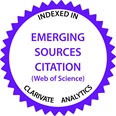Tytuł
Whistleblowing w organizacjach opieki zdrowotnej: przegląd literatury
ORCID
Małgorzata Z. Wiśniewska: 0000-0002-5193-2153
Keywords
whistleblowing, health care organization, McKinsey’s 7S model, verification matrix
Słowa kluczowe
whistleblowing,organizacje opieki zdrowotnej,model 7S McKinseya,macierz weryfikacyjna
Abstract
Purpose: To receive the answers to the following research problems: (1) How is the interest of researchers in whistleblowing in health care organizations developing? (2) How do researchers define whistleblowing in health care? (3) What are the main problems (limitations) of whistleblowing in health care organizations? (4) What factors affect whistleblowing in health care organizations? Design/methodology/approach: The method of systematic literature review based on the PRISMA model was used. To identify the factors affecting whistleblowing, McKinsey’s 7S framework was used. Findings: The researchers from the UK definitely dominate, and the papers from Central European countries seem to be invisible. The vast majority of works came from the 2010s. Whistleblowing serves the good and safety of the patient; however, there are staff concerns about the consequences they may face. ‘Style’, ‘staff’ and ‘shared values’ seem to be the most crucial for whistleblowing, and these are factors considered ‘soft’. Research limitations: The access to databases managed by the home University. In future studies, there is a need to take into account other databases, including additional sources of knowledge, like books and grey literature. Originality/implications: Identifying the state and place of research worldwide on whistleblowing in health care, and a proposal of the whistleblowing verification matrix. New definitions of whistleblowing and whistleblowers were proposed. The above may be considered theoretical contribution to science.
Abstrakt
Cel: uzyskanie odpowiedzi na pytania: (1) jak rozwija się zainteresowanie badaczy whistleblowingiem w organizacjach opieki zdrowotnej; (2) jak badacze definiują whistleblowing w opiece zdrowotnej; (3) jakie są podstawowe problemy (ograniczenia) dotyczące whistleblowingu w organizacjach opieki zdrowotnej; (4) jakie czynniki wpływają na whistleblowing w organizacjach opieki zdrowotnej? Projekt/metodyka/podejście: wykorzystano metodę systematycznego przeglądu literatury przedmiotu w oparciu o model PRISMA. W identyfikacji czynników wpływających na whistleblowing zastosowano model 7S McKinseya. Wnioski: zdecydowanie dominują prace naukowców z Wielkiej Brytanii, natomiast opracowania z krajów Europy Centralnej wydają się być niezauważalne. Większość prac pochodzi z pierwszej dekady XXI wieku. Whistleblowing przyczynia się do zapewnienia dobrostanu i bezpieczeństwa pacjenta, jednak istnieją obawy personelu związane z konsekwencjami, jakich mogą doświadczyć w tym względzie. ‘Styl’, ‘kadry’ i ‘wspólne wartości’ jawią się jako krytyczne dla whistleblowingu i zaliczają się one do czynników „miękkich”. Ograniczenia badania: dostęp do bazy danych tylko macierzystego Uniwersytetu. W przyszłych badaniach należy uwzględnić inne bazy danych, w tym dodatkowe źródła, jak książki i tzw. literaturę szarą. Oryginalność/implikacje: zidentyfikowanie stanu i miejsca światowych badań na temat whistleblowingu w opiece zdrowotnej i zaproponowanie macierzy do weryfikacji wdrożenia whistleblowingu. Propozycja nowej definicji whistleblowingu i whistleblowera. Powyższe może być uznane jako wkład do nauki.
Recommended Citation
Wiśniewska, M. (2021). Whistleblowing in Health Care Organizations: A Comprehensive Literature Review. Problemy Zarządzania, 19(94), 131-165. https://doi.org/10.7172/1644-9584.94.1
First Page
131
Last Page
165
Page Count
34
DOI
10.7172/1644-9584.94.1
Publisher
University of Warsaw







